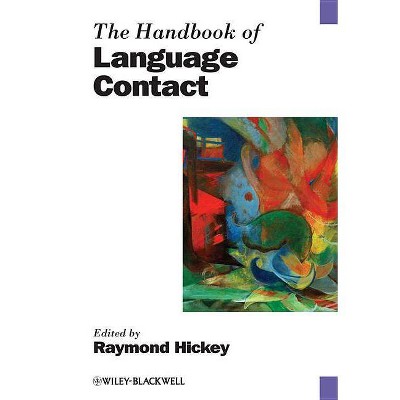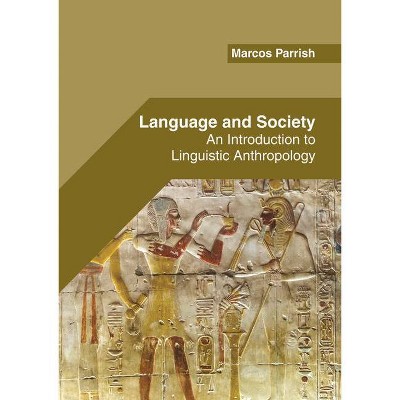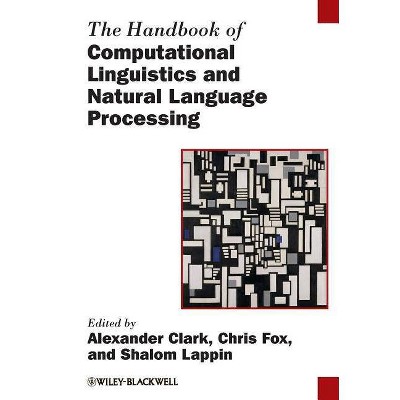An Introduction to Contact Linguistics - (Language in Society) by Donald Winford (Paperback)

Similar Products
Products of same category from the store
AllProduct info
<p/><br></br><p><b> Book Synopsis </b></p></br></br>This book is a comprehensive introduction to the study of language contact and its outcomes, as well as the social and linguistic factors involved. <br /> <ul> <br /> </li> <li>Provides a comprehensive introduction to the field of contact linguistics.<br /> </li> <li>Examines a wide range of language contact phenomena from both general linguistic and sociolinguistic perspectives.<br /> </li> <li>Offers an account of current approaches to all of the major types of contact-induced change.<br /> </li> <li>Discusses the general processes and principles that are at work in cases of contact.</li> </ul><p/><br></br><p><b> From the Back Cover </b></p></br></br>This book is a comprehensive introduction to the study of language contact and its outcomes, as well as the social and linguistic factors involved.<br /> <p><i>An Introduction to Contact Linguistics</i> examines a wide range of language contact phenomena from both general linguistic and sociolinguistic perspectives. It provides an account of current approaches to all of the major types of contact-induced change. Each chapter describes both the linguistic and social aspects of the contact situation and how they affect the outcome. There is also discussion of the general processes and principles that are at work in cases of contact.</p> <p>The book treats all of these diverse contact phenomena in a unified empirical and theoretical framework within which both the outcomes and the processes and principles at work in each case can be identified and compared.</p><p/><br></br><p><b> Review Quotes </b></p></br></br><br>This textbook's comprehensive survey of language-contact phenomena will greatly facilitate further research on language creation and language change. For instance, Winford's eclectic data samples and much in his discussion of language acquisition in Creole formation will help demystify Creole Exceptionalism - the age-old dogma that Creole languages are phylogenetically and typologically 'abnormal'. It is thus that creolophones and creolists will be long indebted to Winford's immense scholarship. <i>Michel DeGraff, Massachusetts Institute of Technology</i> <br /> <p>The volume's extensive, linguistically detailed coverage will make this a stimulating textbook for upper level students with good prior grounding in linguistics. <i>Anthropological Linguistics</i><br /> </p> <p>Along with a comprehensive state-of-the-art presentation of the basic theories and notions in this field, Winford's book is an exciting opening to the sophisticated and intricate universe of languages rubbing shoulders throughout the world ... the book contains a wealth of scholarly material and experimental data which allows for broad perception of language contact. <i>Language Awareness</i><br /> </p> <p>This book is a very good new introduction to language contact, and a must read for all students in the area. <i>Journal of Multilingual and Multicultural Development</i></p><br><p/><br></br><p><b> About the Author </b></p></br></br><b>Donald Winford</b> is Professor of Linguistics at Ohio State University. He is author of <i>Predication in Caribbean English Creoles </i>(1993), and co-editor of several volumes, including <i>Focus and Grammatical Relations in Creoles </i>(1993) and <i>The Structure and Status of Pidgins and Creoles</i> (1998). He was president of the Society for Caribbean Linguistics (1998-2000), and is currently editor of the <i>Journal of Pidgin and Creole Languages</i>.
Price History
Price Archive shows prices from various stores, lets you see history and find the cheapest. There is no actual sale on the website. For all support, inquiry and suggestion messagescommunication@pricearchive.us




















